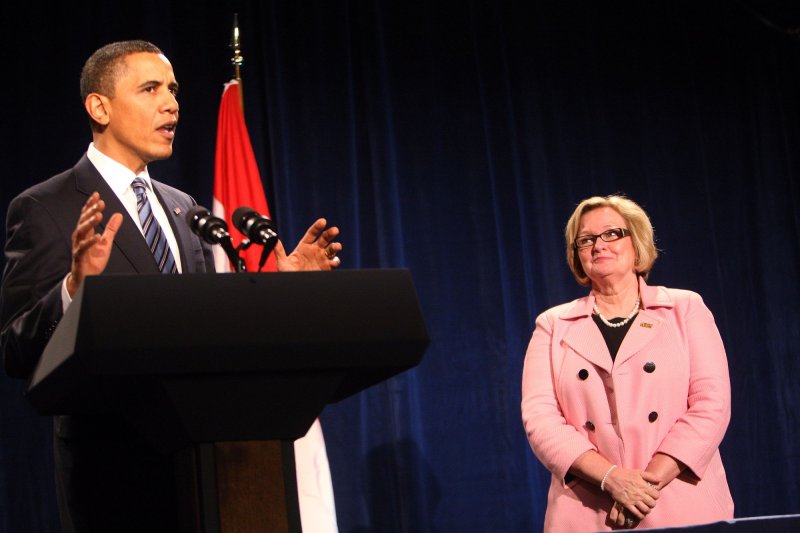U.S. President Barack Obama speaks during a fund raising dinner for Sen. Claire McCaskill (D-Mo.) as she stands near in St. Louis on March 10, 2010. UPI/Bill Greenblatt |
License Photo
WASHINGTON, July 16 (UPI) -- Too high expectations following a historic election are to blame for U.S. President Barack Obama's lousy poll numbers, an ally from Obama's Senate days said.
U.S. Sen. Claire McCaskill, D-Mo., said unrealistic expectations are among reasons for Obama's plunge in popularity and approval ratings, which, in turn, have Democrats worried about defeat in November's midterm elections, The Hill reported Friday.
A Gallup poll this week indicated Obama's job approval rating is 44 percent, while a Washington Post poll suggested Republicans have a chance at winning back the House of Representatives this fall.
"The bar for change was set inordinately high by the tone of the presidential campaign," McCaskill told the Washington publication in an interview Thursday. She was an early Obama supporter, endorsing him over U.S. Sen. Hillary Clinton, D-N.Y., in January 2008.
McCaskill said Obama would have had a tough time pleasing the public regardless of the country's economic situation but the collapse in the economy exacerbated Obama's problems by sending unemployment to new highs and damaging the nation's fiscal health.
"Expectations were so high that if there had not been a complete economic meltdown, it would have been hard," McCaskill said.
She said congressional Democrats can recover from swoon in the polls by mimicking the Republican strategy of keeping to simple themes.
McCaskill told the Hill congressional Republicans almost defeated healthcare reform because their simple messages of opposition resonated with voters more effectively than the more involved reasons about why reform was necessary.
"'No' is simple," she said. "It's the other side that's hard."















